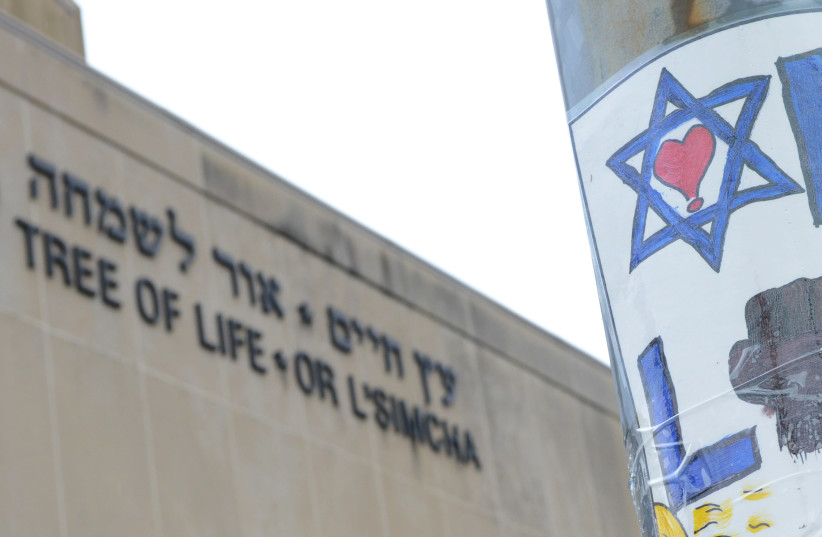A striking 70% of Jewish respondents expressed feeling less safe than they did just a few months before, with none reporting feeling safer, according to the latest poll released by the Jewish Federations of North America (JFNA) on Thursday. This survey, conducted between October 29th and November 1st, offers insights into the concerns and sentiments of the Jewish community in the US amidst a backdrop of increased antisemitism and ongoing geopolitical tensions.
As communities from across the United States prepare to mobilize in support of Israel, show solidarity with hostages held captive by Hamas, and combat antisemitism during the historic March for Israel in Washington, DC, the JFNA's findings shed light on the challenges faced by American Jews and the urgency of addressing these issues on a national scale.
The JFNA poll highlighted significant concerns within the American Jewish community. Notably, 70% of Jewish respondents expressed feeling less safe, signaling a deep sense of unease. None reported feeling safer than before, underscoring the widespread apprehension prevalent among Jewish Americans.
Eric Fingerhut, President and CEO of the Jewish Federations of North America, emphasized the importance of addressing these concerns: "This polling demonstrates precisely why our community feels it is so important to mobilize and come to Washington, so that we can tell our nation's leaders directly about the need to both stand up against the rampant antisemitism in our country and remain steadfast in their incredible support for Israel."
The survey also revealed growing unease about the rise of antisemitism. A staggering 72% of US Jews believed that antisemitism in their local communities was on the ascent, a concern shared by 32% of the general population. In fact, the data showed that the number of Americans perceiving "a lot" of antisemitism had more than doubled in the past two years, making antisemitism appear more pervasive than discrimination against other minority groups for the first time in years.

Nearly a third of Jewish respondents reported witnessing incidents of violence or hate against Jews in their communities, highlighting the distressing impact of this alarming trend.
Jews were more likely to describe the climate in their communities as "tense," "uncomfortable," and "scary" compared to the general population, while less than half felt that things in their communities were "normal."
Jews have higher confidence in the handling of the war
Regarding the response of elected leaders to the ongoing conflict, Jewish respondents were 79% more likely than the general population to believe that their local politicians were doing a good job responding to the war.
Despite these challenges, support for military aid to Israel remained strong. The survey found that 59% of the general population supported US government security assistance to the Jewish state, while an impressive 87% of Jewish respondents agreed.
The survey also highlighted a gap in perceptions between the general American population and Jewish Americans. Only 44% of the general American population approved of US policy toward Israel during the war, while 47% disapproved. In contrast, among Jewish Americans, 69% approved, and 26% disapproved of US policy toward Israel.
A significant disparity emerged regarding perceptions of antisemitism: 74% of Jewish respondents believed that there is a lot of antisemitism in the US today, compared to 34% of the general American community. Additionally, 86% of Jewish Americans perceived an increase in antisemitism in the US compared to five years ago, a sentiment shared by 62% of the general population.
75% of American Jews expressed concerns that the conflict between Israel and Hamas could lead to security and safety issues in their local communities, and 29% reported incidents of physical attacks against members of their communities in the past month.
Mimi Kravetz, Chief Impact and Growth Officer of the Jewish Federations of North America stressed the importance of knowledge as a precursor to action: "We believe that knowledge is an important prerequisite to action, which is why this data is so powerful as our community mobilizes to march on Washington. We look forward to continuing to provide empirical insight about the Jewish community, both to our many partners and the general public."
The upcoming March for Israel in Washington, DC, is expected to draw participants from various communities across the nation, aiming to raise awareness about these pressing concerns and advocate for the security and well-being of the Jewish community.
